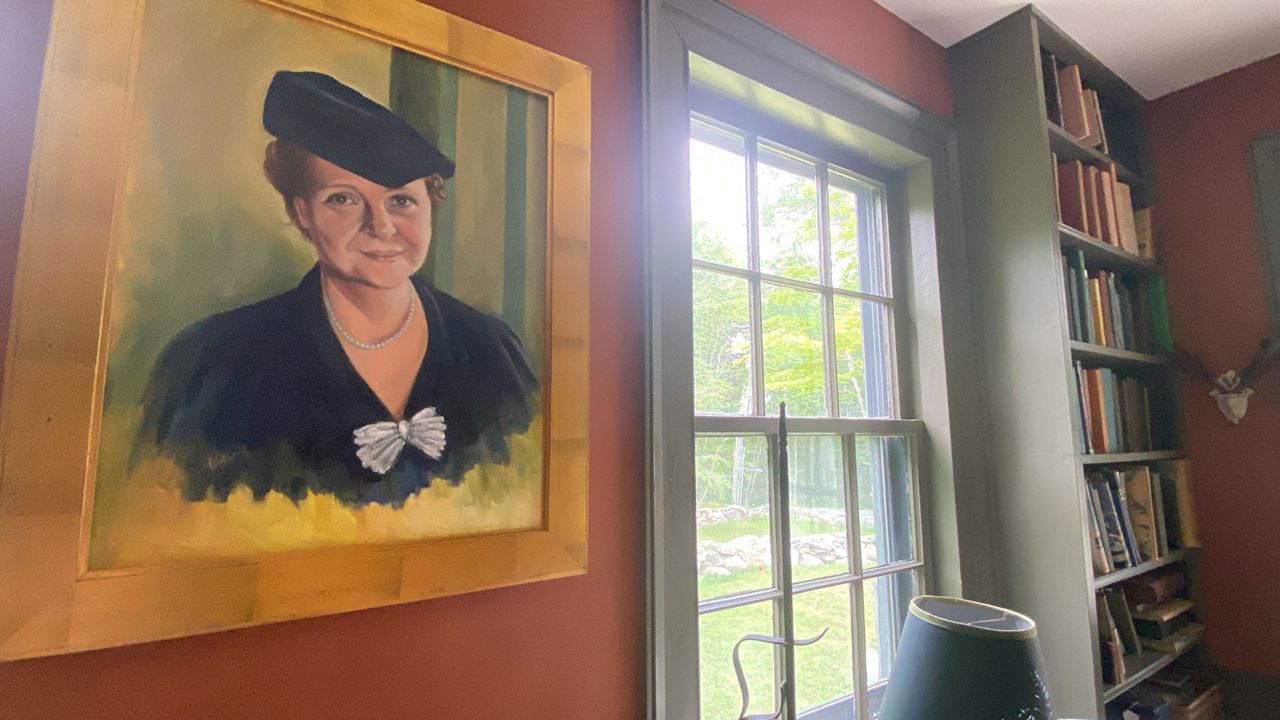Author Stephanie Dray believes that Frances Perkins, labor secretary for President Franklin Delano Roosevelt, is the most important woman in American history.
Perkins may be best known for urging Roosevelt to create the safety net for older Americans that later became Social Security. She is the first woman to serve in a presidential cabinet and the longest serving labor secretary.
But her accomplishments don’t begin or end there.
Dray, a New York Times bestselling author of historical women’s fiction, ticked off a list that included overhead sprinklers, the advent of the weekend and food safety standards. For 80 years, these accomplishments and more have shaped American life.
“When you look around our daily lives, she is everywhere,” Dray said during a recent interview. “The range of accomplishments this woman has just is startling. I think she was the most consequential cabinet member since Alexander Hamilton.”
While Perkins has not yet enjoyed the recognition of a Broadway musical, she did play a role in creating some of the biggest worker protections in the country, including minimum wage and overtime provisions and the unemployment insurance program.
These accomplishments and details about Perkins’ private life are the basis for Dray’s new novel “Becoming Madam Secretary,” which will hit store shelves Tuesday.
Published by Penguin Random House, the book is a work of historical fiction with a release timed to coincide with Women’s History Month. Dray researched 5,000 pages of oral history digitized by Columbia University to inform her work, along with interviews of surviving family members.
Mainers may remember Perkins for her ties to coastal Maine and the efforts of many to preserve the family homestead in Newcastle.
The Frances Perkins Homestead National Historic Landmark offers visitors a chance to see a home preserved to show what life was like in the early 1800s and is a tribute to Perkins’ life and legacy.
While $3.5 million in renovations to preserve the home wrapped up last year, plans are in the works to build a visitor and education center.
For Perkins, the time spent in Maine served to ground her as she lived and traveled in fast-paced New York and Washington D.C., Dray said.
“This was sort of her spiritual home,” she said. “She wandered many places. She was always traveling and on the go, but she always would come back to Maine. This was so important to her. These were her roots. It’s where she remembered the lessons that her grandmother taught her.”
Perkins was born in Boston in 1880 and raised in Worcester. She was very close to her grandmother, Cynthia Otis Perkins, for whom the Maine homestead was built in 1837.
While Perkins catalogued much of her professional life, she shied away from revealing personal details, which led Dray to track down some letters — and interview Perkins’ grandson.
The book is written from Perkins’ perspective, which required Dray to fill in some gaps when necessary. In a lengthy Author’s Note, Dray explains to readers that while she pulled from historical documents as much as possible, there were times when she had to “ferret out clues” to piece together a compelling narrative.
“This book is as close to the historical record as I can while still shaping something that reads like a novel,” she said.
Before taking on the book, Dray said she knew a lot about Perkins’ accomplishments. But she was surprised to find that Perkins had so many connections to important historical events and prominent figures.
Dray described it as “the Forrest Gump nature of her life.”
That includes witnessing the 1911 Triangle Shirtwaist Factory fire in New York City that killed 146 and inspired her to focus on worker safety; meeting Winston Churchill while traveling Europe, enabling her to coach FDR; a friendship with author Sinclair Lewis and of course, Eleanor Roosevelt.
Dray describes Perkins’ early relationship with FDR as prickly, with neither caring much for the other.
“They loathed each other when they first met,” she said. “She thought he was just a spoiled rotten arrogant jerk. He thought she was a stuffy insufferable blue stocking.”
Yet they believed enough in the same goals that they advanced policies through the New Deal with repercussions for generations to come, Dray said.
As for her target audience, Dray said her goal is to spread the word about successful women in history to balance out what many already know about the founding fathers.
“We don’t know enough about our founding mothers,” Dray said. “I think it’s important for women to know that women helped shape this country every bit as much as men did.”



